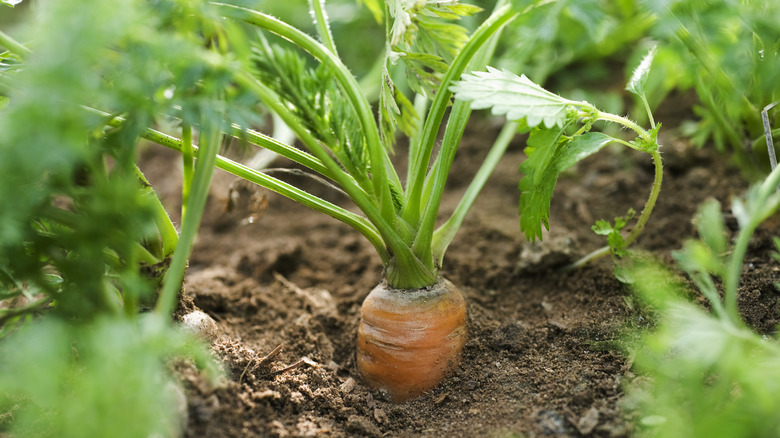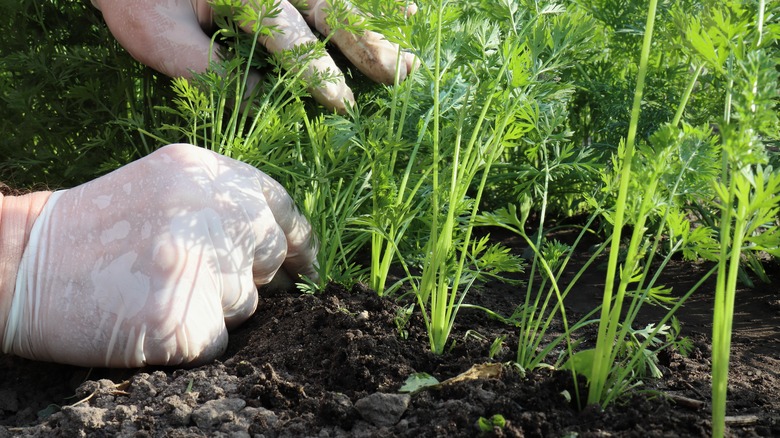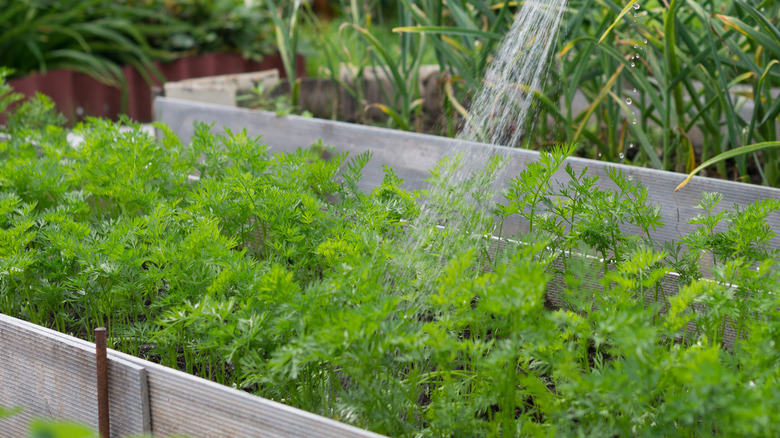Why You Should Be Thinning Your Carrot Plants For Bigger Results
It can be difficult to bring yourself to thin seedlings. Even if you know it will benefit the remaining plants, it can be hard to pull out plants you've worked so hard to grow. Thinning is even more important for carrots (Daucus carota var. sativa) than it is for many other crops, but luckily, even young carrots make tasty snacks, so you don't have to worry about your hard work going to waste.
Because of their small seed size and often poor germination, carrot seeds are generally started quite close together in the garden. While there are clever hacks to ensure healthy carrot germination rates, it's still generally best to sow your seeds only around half an inch apart to account for losses. Unfortunately, a single carrot plant needs at least 1 inch of space, if not more, to reach its full potential so thinning is a must if a large percent of your seeds germinate and survive.
When to thin your carrots
While carrots can be grown everywhere from zones 2 through 11, carrots often struggle in summer heat, making the cool temperatures of spring and autumn the best time to grow them in most places. Germination rates tend to be far lower when soil temperatures are above 80 degrees Fahrenheit. Don't worry if your carrots are a bit slow to germinate though, as their seeds can take up to three weeks to sprout. Just make sure to keep them moist.
Exactly how much space your carrots need depends on their cultivar, so be sure to check your seed packet for specifics on your carrots, but on average it is between 1 inch and 3 inches. Don't rush to thin your carrots too early though, as the ideal time is when the largest seedlings' greens are around 4 inches tall. They likely have around three to four true leaves at this point. Waiting this long not only gives you a good idea of which plants are the healthiest and best to leave in the ground, but also has allowed the young carrots you need to remove to mature enough to make a tasty little snack.
Other reasons your carrots may not be growing well
Even if you give your carrots plenty of space, there's still a possibility they may not grow as big and robust as expected. One of the most common reasons for this include soil that is too compacted for the carrots. Light, sandy, and fertile soil that is relatively free of rocks is a must for carrots. If your in ground soil is too dense or poor quality, you can also grow carrots in containers which gives you more control over the soil quality.
Another common problem for carrots is improper watering. If carrots are under-watered, they often grow poorly and become fibrous and stringy. Watering deeply once or twice a week is the best for ensuring healthy and robust carrot growth. Be sure to check the soil a few inches below the surface to confirm that you are watering deeply enough.


